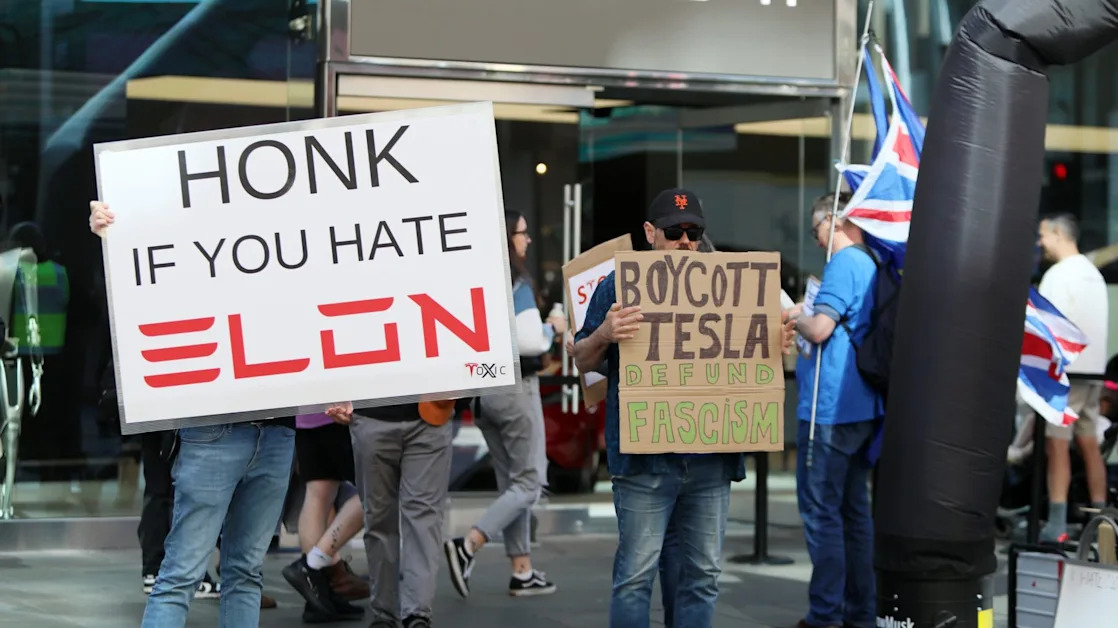
Wall Street’s biggest Tesla bull just raised the white flag, blaming Elon Musk for slashing his price target nearly by half
Roughly a month ago, Wedbush Securities analyst Dan Ives warned Tesla CEO Elon Musk that patience among his shareholders was “wearing very thin”.
It now looks as if it finally snapped, after Wall Street’s most reliable Tesla bull slashed his price target nearly in half, blaming the polarizing CEO for poisoning the well. Moving forward, he said, EV sales for the brand that once hit breakneck speeds would now only crawl ahead with percentage gains in the single digits as a result.
“The demand destruction for Tesla and brand damage is real ,” Ives wrote, “and has morphed into something much more concerning over the past few months.”
By cutting his price target to just $315 from $550, the Wedbush analyst broke ranks from many Tesla bulls who largely view Musk's politics as a wash—as in, Musk is losing no more customers on the left than he is gaining from the right.
Ives not only disagreed with that, he said the tariffs risked spreading the problems from Europe and the U.S. farther East, explaining he was much more worried about Musk’s association with Trump in terms of China.
Whereas his recent price target changes appeared to be driven by sentiment and conviction, Ives this time erased entire assumptions underpinning the fundamental earnings drivers.
He justified the new $315 target with a steep downward revision of his estimates for Tesla vehicle deliveries for 2025 all the way through to 2030, reducing them by an average of more than a fifth.
Sharp downward revision of delivery estimates through 2030
Ives now predicts EV sales for the brand should increase at an annual pace of roughly 8% from next year onward—down from a previous rate of approximately 15%.
“We now estimate Tesla has lost/destroyed at least 10% of its future customer base globally based on self created brand issues and this could be a conservative estimate,” Ives wrote. “In Europe, this number could be 20% or higher…all self-inflicted by Musk.”
What that means in practice is deliveries of just 1.70 million vehicles this year, a 5% annual drop over 2024, rising to 2.47 million at the end of the decade. For comparison, his estimates were at 2.19 million and 4.54 million, respectively, only five months ago.
Previously Ives had calmed investors by arguing Musk’s influence with Trump would likely grant him a hefty say in the China tariffs the president was planning.